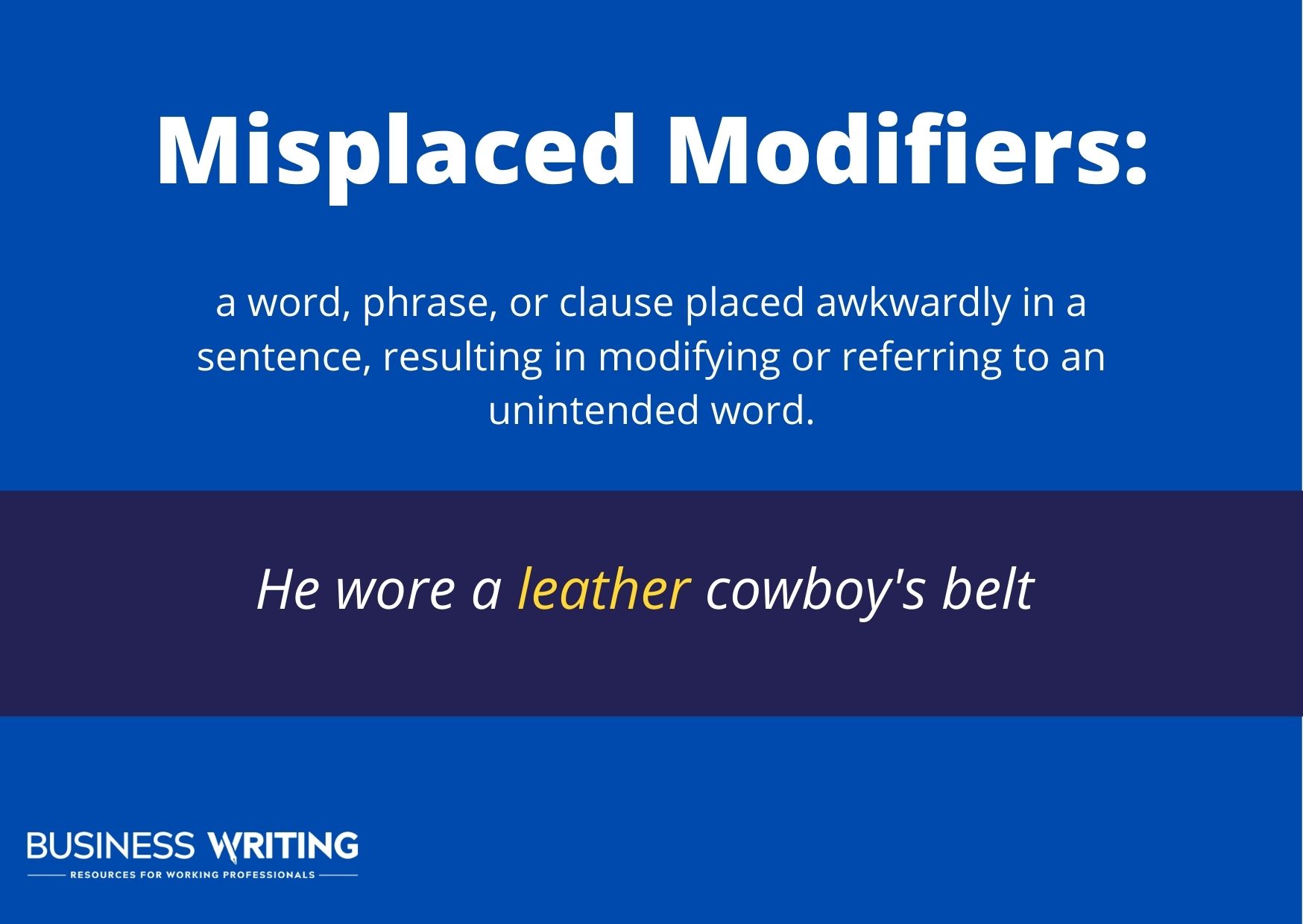What are misplaced modifiers? Let’s start from the top. Modifiers hold a lot of power—they can change, clarify, or limit a particular word in a sentence. You can use them to add explanation or emphasis. They provide the extra details that make a subject interesting. They are often descriptive words—adjectives and adverbs. And when used correctly, they transform drab text into strikingly beautiful sentences. And this is why they are the supermodels of the grammar world.
But when a modifier is misplaced or left dangling, it can quickly become an ugly duckling. Therefore, it’s essential to know what a misplaced modifier is and how to avoid using them.
What Is a Misplaced Modifier?
You’ve heard the warnings—“Avoid using misplaced modifiers”—but do you really know what one is? Could you pick a delinquent modifier out of a lineup? Let’s start with the basics:
A modifier is a word—like an adjective or noun—used attributively.
- Example: He was a loyal family Loyal and family are modifiers.
A misplaced modifier is a word, phrase, or clause placed awkwardly in a sentence, resulting in modifying or referring to an unintended word.
- Example: He stole a gold woman’s necklace. Was the woman gold or the necklace?
Modifiers add descriptive flavor to your writing. However, when a modifier is placed wrong in the sentence structure (misplaced), it can change the meaning entirely or confuse your reader. Let’s consider a few examples of how to avoid using misplaced modifiers.

Examples of Misplaced Modifiers
Modifiers often get misplaced in a sentence unintentionally. It’s when you go back to reread your copy that you often discover the mistake. Reading the sentence—especially out loud—is an excellent way to listen for confusion, humor, or ambiguity. Consider the following examples:
- An excellent doctor and father, the CEO conferred upon him the prestigious award.
Is the CEO an excellent doctor and father? It’s a confusing sentence. Let’s add some clarity like this:
- The CEO conferred the prestigious award upon John, an excellent doctor and father.
Here’s another example:
- Hiking in the Andes, my sunglasses were lost.
Who’s hiking? Obviously not my sunglasses. Let’s fix this:
- When hiking in the Andes, I lost my sunglasses.
When you are writing a first draft and the creative juices are flowing, let the words come naturally. Then, when you go back to edit, refine, and proof your copy, read like an editor. Look and listen for illogical-sounding sentences or confusing lines of thought. Your goal is to write clearly, concisely, and accurately to convey the information to your reader. And revising sentences that have misplaced modifiers will help you to do just that.
What Are Limiting Modifiers?
As you write an email, a business report, a company memo, etc., consider skipping limiting modifiers. What are limiting modifiers? These are modifiers that put fierce restrictions on the subject, noun, or pronoun they immediately precede. For example:
- Our accountant only uses an Excel spreadsheet when presenting a P&L report.
But is that truly the case? By using the word only, you are limiting the accountant to Excel. Perhaps she uses QuickBooks to gather a profit and loss report and then exports it to Excel. Take a few minutes to decide if it makes sense for you to include a limiting modifier. When in doubt, leave it out.
Here are some common limiting modifiers:
- Always
- Simply
- Hardly
- Almost
- Nearly
Dangling Modifiers
What is a dangling modifier? It is a word or phrase that you use to modify the following word(s), but the next word is missing (leaving the modifier dangling). Thus, the sentence sounds illogical. For example:
- After reading the employee manual, the rules seemed overwhelming.
The problem: The rules didn’t read the employee manual, but the sentence implies that they did. You can fix a dangling modifier by adding the missing word(s) and placing the modifier next to it. Like this:
- After reading the employee manual, Janet found the rules to be overwhelming.
You can avoid dangling modifiers and improve your writing skills by doing two things: (1) Avoid being too wordy, and (2) Use active voice versus passive voice.
You should always strive to improve your business writing and communication skills. And learning how to correctly place modifiers next to the words they modify will help you grow as a writer.
—
Want to sharpen your business writing skills? Discover our acclaimed online courses.






